Records - Interview Part 2
by John Clarkson
published: 23 / 11 / 2007
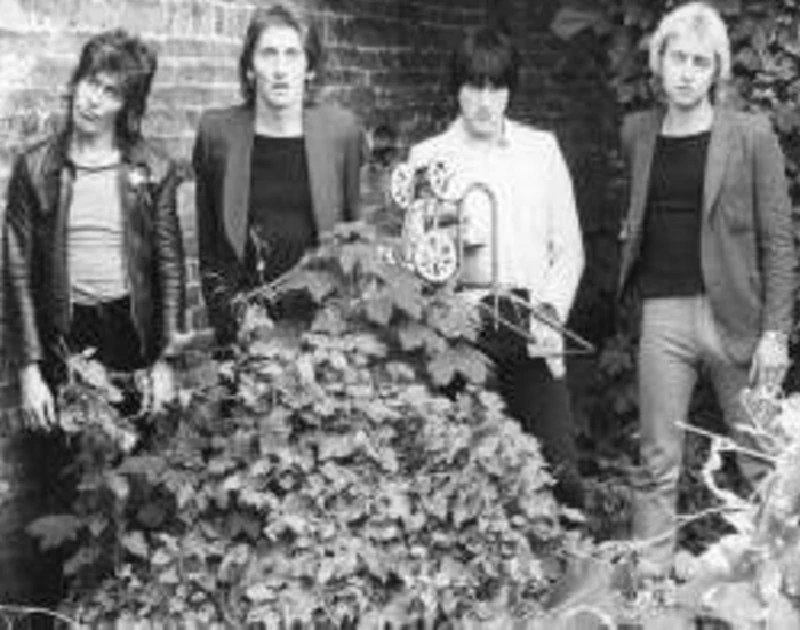
intro
...while in the second part he tells of its downfall
PB : Do you think that things went down well in the States because they had much more of a Beatles thing going on at the time than Britain did ? They had bands like the Knack. WB : Yes, the Knack were contemporaries of ours, weren't they ? 'My Sharona' came out in '79 which by the way I think is fantastic, a\great rocking record. Yeah, I think there was a novelty value with these four limey guys doing this kind of Beatle-y type thing. We were good though and we had some good songs. Hugh was a great guitar player and 'Starry Eyes' was quite a good singel. We got played to death on FM radio there in 1979. We came back from that trip and we recorded our debut album with "Mutt" Lange. He had already produced the Motors who we quite liked and after us he went on to produce AC/DC ('Highway to Hell'-Ed) and that's when he got seriously famous (Lange would go on to become Def Leppard's regular producer and also to produce Shania Twain to whom he is now married-Ed) . The Americans loved the album. We toured America throughout the summer of '79 with 'Starry Eyes' on the radio and the album and the single both went Top 50 on Billboard. We did loads of press. We played in Central Park supporting the Cars in front of about 40, 000 people and also opened for Joe Jackson on a few dates. We also did dates where groups of which we were fans opened for us. We had major American bands like the DBs and the Shirts whose records we had bought being our support acts in Detroit and Cleveland and places like that (Laughs). PB : As well as having "Mutt" Lange as a producer, the engineer on the first Records album was Tim Friese-Greene who also went on to big things with Talk Talk What do you think they brought to the recording ? WB : We had already staked out the territory with what it was going to sound like. We had already decided that the songs were all going to be around 3 minute 15 seconds and were going to be in a classic format. We staked out the style, but what they brought to it was the polish and the veneer and studio discipline. Mutt and Tim also really thrashed out the arrangements. We rehearsed until we were blue routining. We did loads of takes until we got the right take. The overdub sessions went on forever. The six weeks we were recording that album were hard work and quite intense with them, but they brought to it terrific studio expertise. PB : Why was that album called 'The Records' in America and 'Shades in Bed' back home ? WB : I don't know. We came up with 'Shades in Bed'. Virgin was, however, being distributed by Atlantic and it was the Atlantic infrastructure that was really promoting us. They just said, "We want to call it 'The Records'. We want to reshoot the cover. We want to change the track order and we want to use a different version of 'Starry Eyes' " and we said "No problem.". The Kursaals had had a lot of disagreements with CBS and I had learnt then that the artist doesn't always know best. I had grown up a bit. There were certain things where we would say, "Okay. You want to do that. We'll run with it." We were quite compliant.. Everything was going great really and then we blew it (Laughs). PB : What went wrong ? WB : We fired Huw Gower. We got asked to do a tour in the Autumn of European tour supporting Robert Palmer. We went on the tour with Robert and it was going to take in Holland, Germany, Austria and various other European countries. We did the first four dates in Holland and then Robert Palmer's wife got ill. At least that was what we were told and he flew home and cancelled the rest of the tour. I don't think it was because tickets weren't selling because we were playing big places and he was huge in Holland , but on that tour certain things began to set in with Huw which had already shown their face in America. He was getting frustrated because he wasn't doing any of the songwriting. It was a classic situation. I don't want to sound arrogant, but John and I could write songs like it was doing the laundry. I could write a lyric. John could write a tune. When it came to cutting the next album, we had already written more songs than we we needed for it. The other two guys had come up with their own efforts which frankly weren’t very good and the penny dropped with Huw. He realised that he wasn't going to get in on the songwriting and he became resentful. It is a story that you've heard it a million times before. Anyway, it got quite vocal on that American tour and on that Robert Palmer tour something went off. I can't remember exactly what it was, but when we came back from it we decided that we couldn't work with him anymore and we fired him. In retrospect I think that was a mistake. I think what I would do now if I was managing the group is that I would try to accomodate him. I would say, "This is the way it is. Maybe if it is about money we can share the royalties around." It was never to do with money for me. It was just the fact that I thought his songs were crap, not to put to fine a point on it. Tthe other big mistake we made was that that we said that we weren't going to work with Mutt and Tim anymore. PB : That was your decision, was it ? WB : It was, but I don't think Mutt would have worked with us anyway. Who were we ? He was off doing AC/DC by that stage, but I think Tim would have worked us and that is what we should have done. We had met this guy in the States, Craig Leon, who had worked with the Ramones and Blondie. I got on quite well with Craig and he wanted to produce us and so we went with him. 'Crashes' in many ways a more realised album than the first one, but it doesn't sound as good. It didn't sound as radio friendly in the States. Those were there the two errors we made, but there was another side to it as well. Virgin's deal with Atlantic had come to a close. We were the first band under that deal and with 'Crashes', a year later, we were the last band under it. We had the first release in the States and the last, and the contrast was dramatic. In '79 we were doing 10 interviews a day and in-store appearances. We would be picked up us in limos and had the works, but the next year it was the complete opposite. We had to phone up contacts we had made the previous year. We would go to places like Boston and had to do our own press. There was hardly anything from Virgin.. PB : You had also changed your guitarist. You had this young American guy playing with you. WB : Yeah, Jude Cole. He was great. I had seen him with Moon Martin at the Marquee and I loved Moon Martin's stuff. I think he was 18 when I first met him and 19 when he joined the group. He had been a child prodigy. He was like Peter Frampton or something in terms of precocious talent and he could play great guitar. He could sing beautiful harmonies as well. He was the missing element we didn't have really. His harmonies and his vocals worked really well with John ,but he lived in Los Angeles and it wasn't going to work. He was in the band less than a year. PB : There's a really bizarre story at that time about your ex-manager lending your equipment to this New York band he was promoting and you having to sue to get it back. What happened there ? WB : Out of all of us who went to America and had our heads turned round by the American experience, our manager was the biggest victim. It went to his head and he started to look around for other acts to manage as well as us. He found this band in New York who were quite a good group and he decided he was going to manage them and he told us that he was going to take on this other group and we said ,"Okay. Good luck. Have you got the time ?" We weren't jealous or anything. I thought it was a bit of a flash in the pan to be honest. When we finished our third and what would be our final tour of America in 1980, we left all our gear and guitars and amps and drums in New York to be air freighted back. We didn't have any touring to do so they sat in a warehouse there for three weeks and the next thing we know is that he has lent our gear to this group which we didn't particularly mind, but when some of it didn't find its way back to England, some guitars and various other things, that is when we fell out with him big time. He sued us actually. We weren't proactive. I just thought, "Well, let it runs its course" and he'll disappear and we'll go and buy another guitar and I forgot it, but he took out a legal injunction against us working on the basis that we hadn't paid him the commission that he thought that he was due on gig fees. We went to court against him and we hired a barrister whose name was actually Gordon Bennett (Laughs) and we won the case. His case was thrown out and we were awarded costs. So there we were without a manager and so I took over trying to organise the group as well as trying to write the songs. Things had really disintegrated. We thought that Virgin was definitely going to drop us. We had no manager. We had no guitarist. Half our gear was missing. We weren't doing any live gigs. All we had was a demo with about eight new songs on it, but when we played it to the A and R man at Virgin, he said, "Great. Let's do another album." We couldn't believe it.. PB : You got someone else in to replace John Wicks as a singer on 'Music on Both Sides', didn't you ? WB : When we went to the States, there was always a criticism of John's vocal range . We would get an earbashing from the local promo. (Mimics an American accent) "You guys are really great, but you should really think about getting a frontman". I felt a bit sorry for John, but John said, "Hey, well, if that's what we need to do, let's try it as an experiment" and so we got Chris Gent in. Chris was quite a boisterous kind of guy with a big range and he sang a bit like Robin Zander out of Cheap Trick and he joined the group. I decided at that stage that I didn't want to play drums in the studio anymore because I didn't feel that I was good enough for Chris. Virgin wanted me to produce it. I don't know if it was a cost saving exercise. It might have been, but I was quite keen to do it, so I produced 'Music on Both Sides' rather than playing on it. PB : Who was Bobby Irwin, the drummer who replaced you in the studio ? WB : He was in a pub rock band in the early days called the Strutters and then he was in a group called the Sinceros who recorded for CBS . In fact he was in Lene Lovich's backing band on that Stiff tour which was when I met him. He is now Nick Lowe's drummer . He has worked with Van Morrison as well. He's a very respected drummer nowadays and he was a great guy.. PB : ‘Music on Both Sides’ is a much angrier and more bitter album than the other two albums. WB : Oh, yeah. You bet. Songs like 'Clown Around Town' and ‘Third Hand Information’ were all written about being pissed off. 'Clown around the Town' was about the manager. 'Third Hand Information' was about Richard Branson, who we had had a big falling out with about publication rights. PB : The band played the two last shows before splitting up. Did Chris Gent sing with you on stage at that shows ? WB : We did two gigs. It was a bit of a joke really. Virgin said, "To get your last five grand you've got to promote the album", so we said, "We'll try and get a tour" but nobody wanted to know (Laughs) and so we got these two pub gigs instead. One was in a pub called the Pits at the top of Great Portland Street and the other was at the Fulham Greyhound which was a horrible pub rock venue and so we turned up twice and did these two gigs with Chris. We had a good turn out, but it wasn’t like it had been three years earlier and John and I looked at each other across the stage of the last gig, shrugged our shoulders and said to each other, "This is the end of the group" and so it was. PB : The band reformed a couple of times in the late 80's and early 90's. WB : We tried to get back together and we did some rehearsals. We did demos and we wrote some new songs which were quite good actually. We did a gig at a pub in Kingston-on-Thames in 1992, but it didn’t really come to anything. PB : Was that the first line-up ? WB : That was me, John, Phil and a friend of ours called Paul on guitar. PB : How did you feel about those three albums now 25 years on ? WB : I think they are alright. The first one has got the gloss and the sheen and there is perhaps a little bit of over production there, but there are a couple of good songs on there. I think the second album is the best one. It is a little bit under produced, a little bit thin, but it has got some cracking songs on it and the third album (sighs) it's my least favourite. It is the least commercial. I shouldn't say that just having put that out, but it is a bit of a folly really. I did want to complete the whole catalogue and so I have put a few unusual tracks on it as well. PB : One of the things that seemed to go against the Records in Britain was that you were always out of fashion. At the time there were all these electro pop groups and all these angst-ridden indie groups. You didn’t fit into either camp. Do you think that contributed to you not being more successful ? WB : Yes, that’s true, but then look at the Jam who incidentally I love. They were ten younger than us and Paul Weller is a genius, but a lot of their stuff wasn’t a millions miles away from what we were doing. It was guitars, choruses, harmonies, Rickenbackers, but they just did it so much better. I really don’t mind saying that we didn’t make it because we weren’t good enough. You come across all these old and bitter musicians who say that they were ripped off, but we just weren't good enough. We had a great time. They were great days, but at the end of the day we just weren’t good enough. PB : When did you start writing ? WB : When 'Mojo' started in 1993. Paul Du Noyer, their then editor, called me up and said, "Come in and have a chat" and I said "What's this about ?" and he told me that they had a new rock magazine but he wouldn’t tell me the title. It was all under wraps. He said, "We are hoping that we can interest musicians in writing for us and I see that you have done a couple of sleeve notes. Do you want to do it ?" and I said, "Fantastic." I did quite a lot for 'Mojo' in its first four years or so, but I hardly do anything for them now.. PB : Have you been focusing on books instead ? WB : Yeah, I did, 'No Sleep ‘Til Canvey Island : The Pub Rock Story' and I am now doing a biography on Ian Dury. PB : When do you see that coming out ? WB : It will be a year or two away yet. PB : What are the other members of the band doing now ? WB : John lives in California in Los Angeles and he goes out as John Wicks Records and he has just brought out an album called 'Rotate' which I haven't heard, but I have heard is a bit like the Records. Huw Gower lives in New York City where he plays guitar and does session work. He also tours with oldies acts as well. He has played with the Drifters and the Coasters. He has got his own record label and he has put out a couple of indie records on that. He has also got a band with his daughter. Phil Brown is in London and has had some ill health, the details of which I don’t know, but I do keep in touch with him and he is not playing anymore. Jude Cole has a studio in Los Angeles with Keifer Sutherland. They have a production facility and there's me writing about pub rock bands. PB : At the beginning of the interview you said there was another drummer who wrote lyrics who you could think of. Who was that ? WB : Well, I can’t possibly tell you.. He's in a famous American group who have just got a new album . He’s a great singer, a better singer than he is a drummer. West coast, easy listening, lots of harmonies, a bit of a desperado. PB : Don Henley ! WB : (Laughs) Yeah. PB : Thank you.
Picture Gallery:-
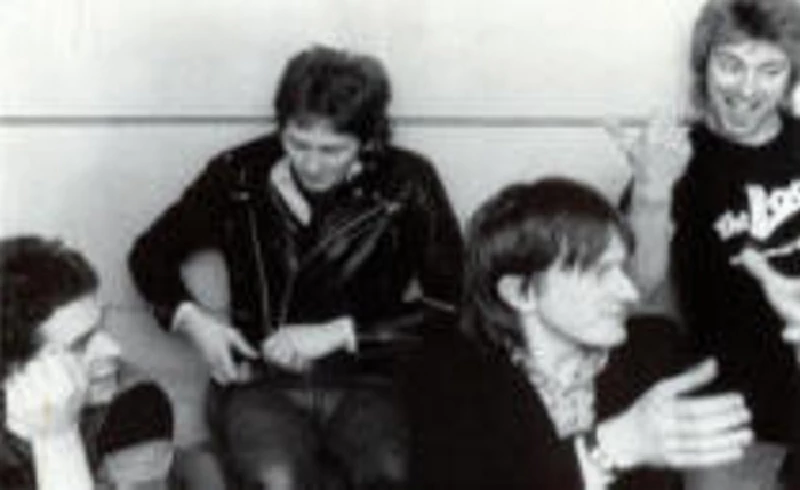
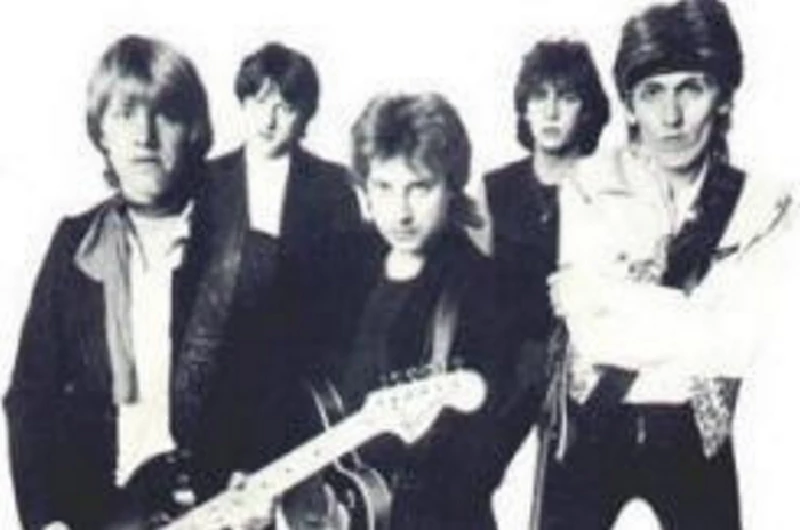
interviews |
|
Interview Part 1 (2007) |
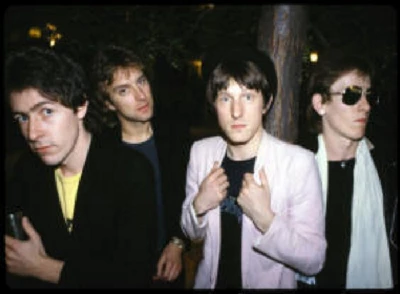
|
| In the late 70's melodic power pop rockers the Records looked breifly set for major success, especially in America, but it all fell apart in a series of Spinal Tap-esque bad decisions. In the first part of a two part interview, drummer Will Birch chats to John Clarkson about his group's rise... |
most viewed articles
current edition
Carl Ewens - David Bowie 1964 to 1982 On Track: Every Album, Every SongArmory Show - Interview with Richard Jobson
Colin Blunstone - Thalia Hall, Chicago, 16/7/2025
John McKay - Interview
Visor Fest - Valencia, Spain, 26/9/2025...27/9/2025
Bathers - Photoscapes 1
Billie Eilish - O2 Arena, London, 10/7/2025
Loft - Interview
Robert Forster - Interview
Sir Tim Rice - Interview
previous editions
Heavenly - P.U.N.K. Girl EPManic Street Preachers - (Gig of a Lifetime) Millennium Stadium, Cardiff, December 1999
Beautiful South - Ten Songs That Made Me Love...
Oasis - Oasis, Earl's Court, London, 1995
Coldplay - Wembley Arena. London, 16/8/2022
Prolapse - Interview
Peter Perrett - In Dreams Begin Responsibilities Interview Part One
Boomtown Rats - Ten Songs That Made Me Love....
Trudie Myerscough-Harris - Interview
Pixies - Ten Songs That Made Me Love...
most viewed reviews
current edition
Sick Man of Europe - The Sick Man of EuropeDavey Woodward - Mumbo in the Jumbo
Amy Macdonald - Is This What You've Been Waiting For?
Lucy Spraggan - Other Sides of the Moon
Phew, Erika Kobayashi,, Dieter Moebius - Radium Girls
Suzanne Vega - Flying With Angels
Bush - I Beat Loneliness
Blueboy - 2
Alice Cooper - The Revenge of Alice Cooper
Cynthia Erivo - I Forgive You
related articles |
|
Shield Patterns: Interview (2014 |
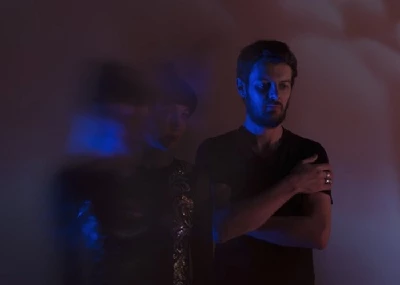
|
| John Clarkson speaks to Richard Knox, the owner of Gizeh Records, about Shield Patterns, the electronic duo that he has formed with Manchester-based singer-songwriter Claire Brentnall; their debut album, 'Contour Lines', and his growing label |
Pennyblackmusic Regular Contributors
Adrian Janes
Amanda J. Window
Andrew Twambley
Anthony Dhanendran
Benjamin Howarth
Cila Warncke
Daniel Cressey
Darren Aston
Dastardly
Dave Goodwin
Denzil Watson
Dominic B. Simpson
Eoghan Lyng
Fiona Hutchings
Harry Sherriff
Helen Tipping
Jamie Rowland
John Clarkson
Julie Cruickshank
Kimberly Bright
Lisa Torem
Maarten Schiethart